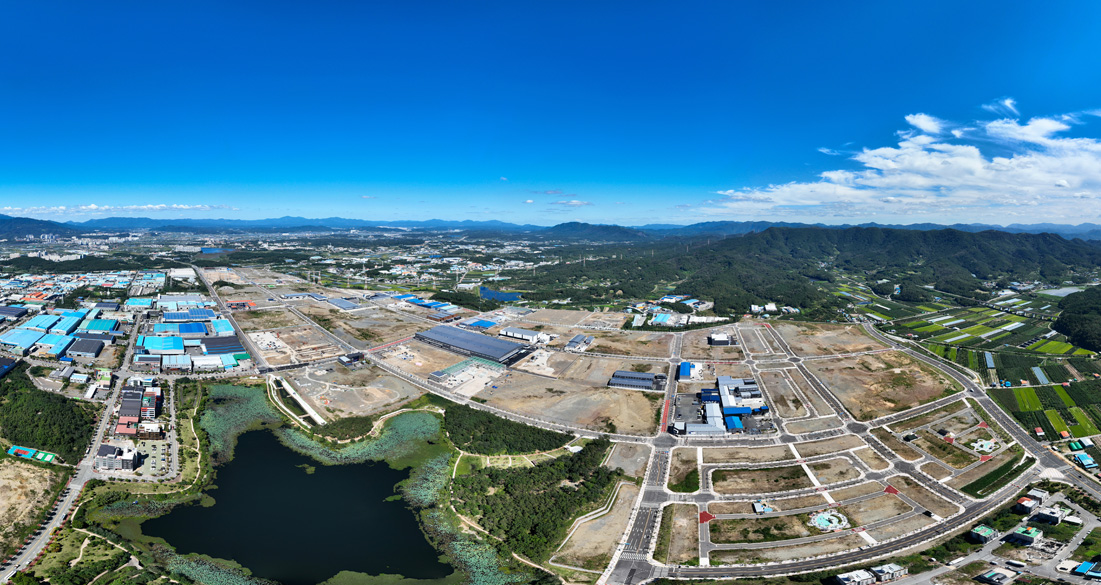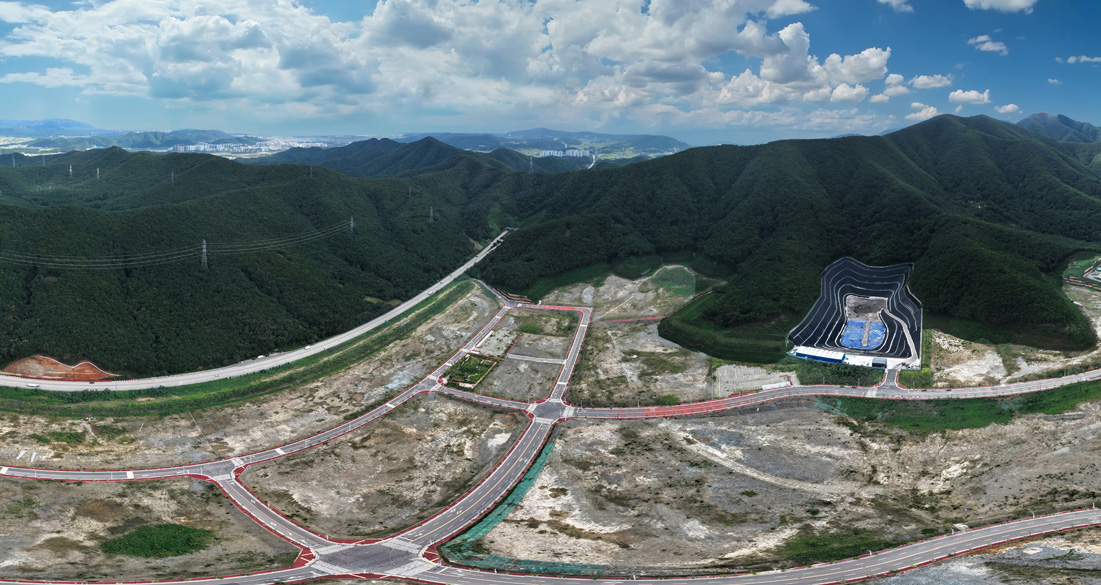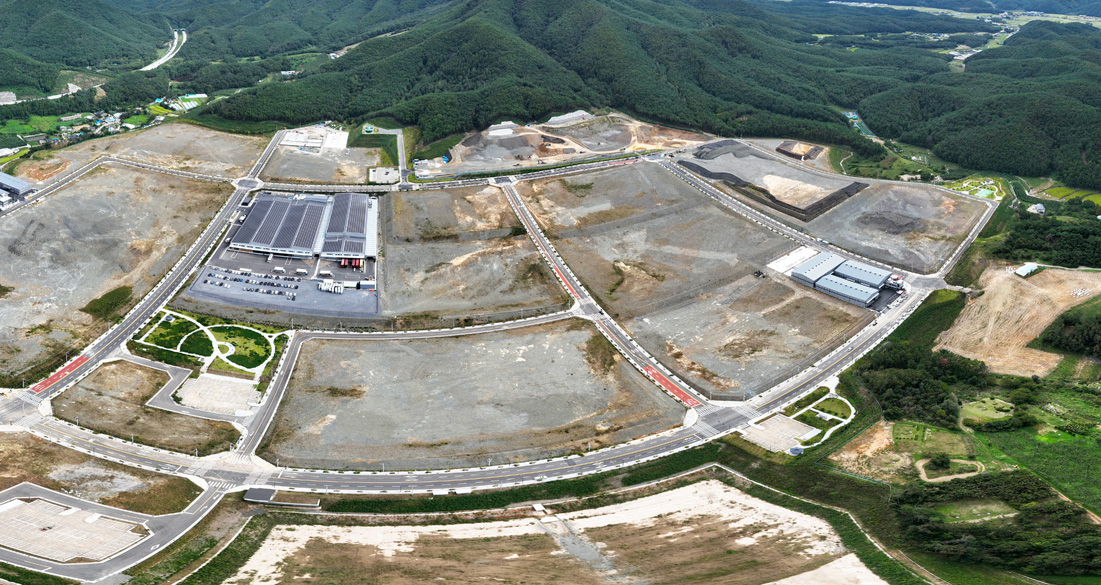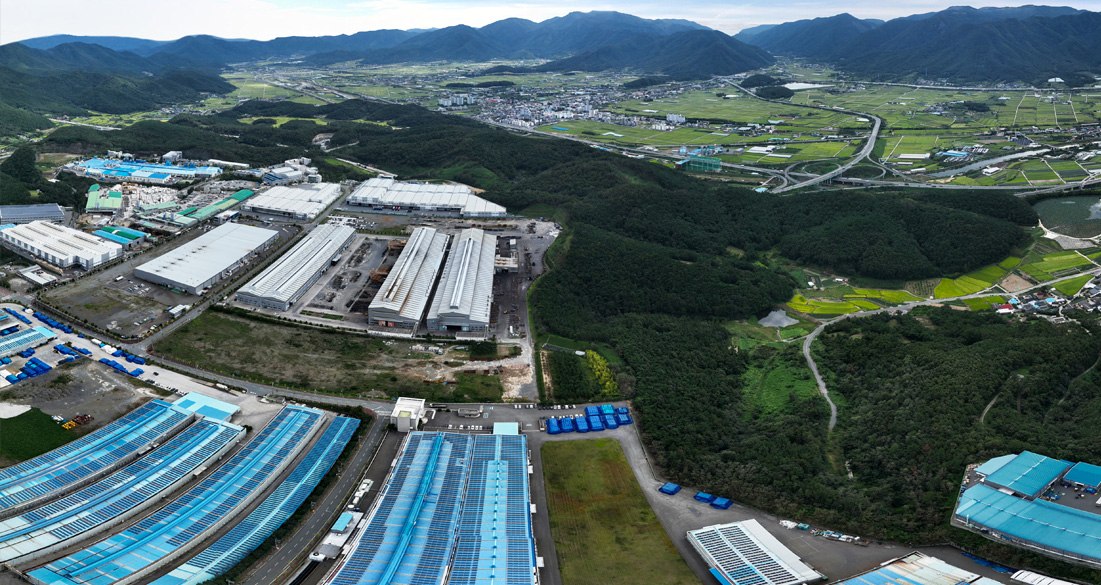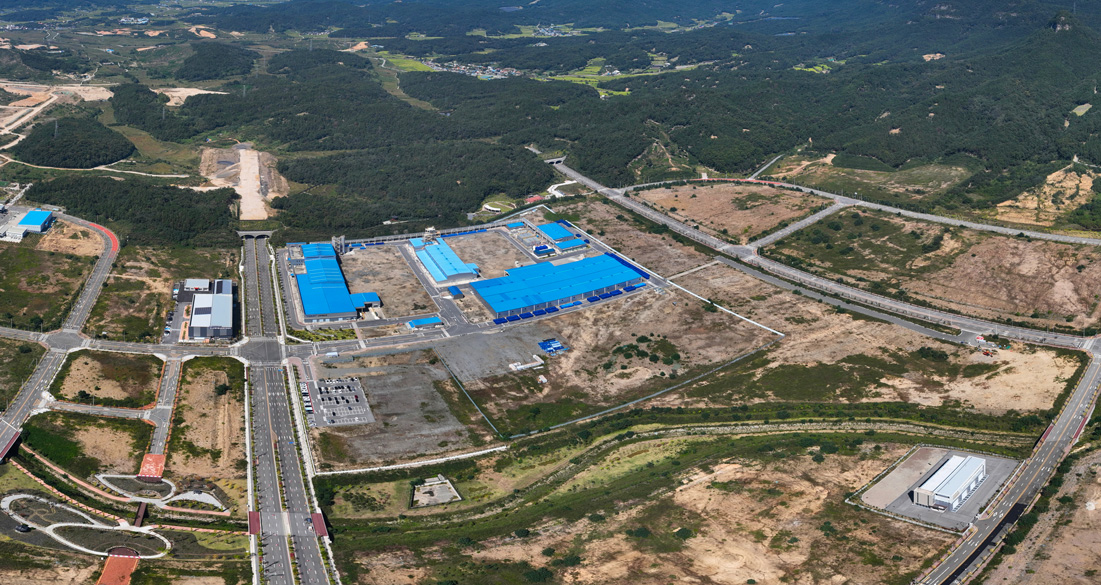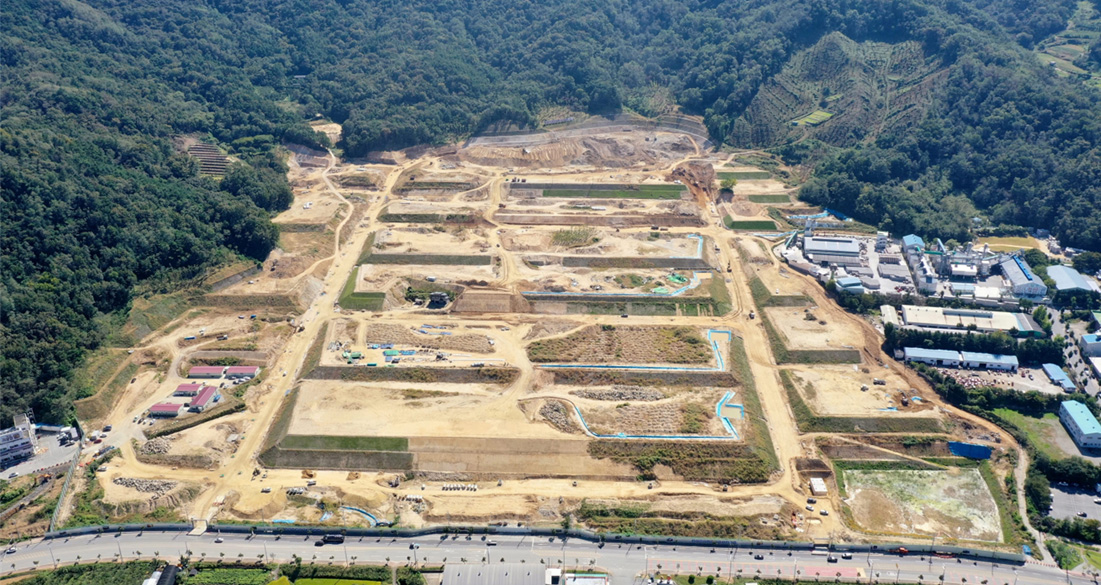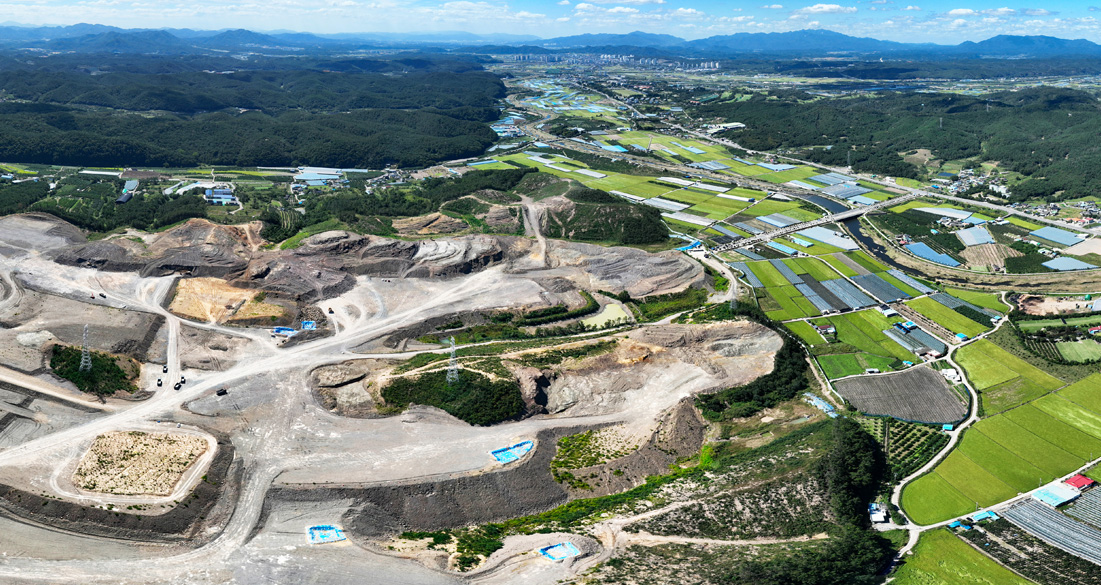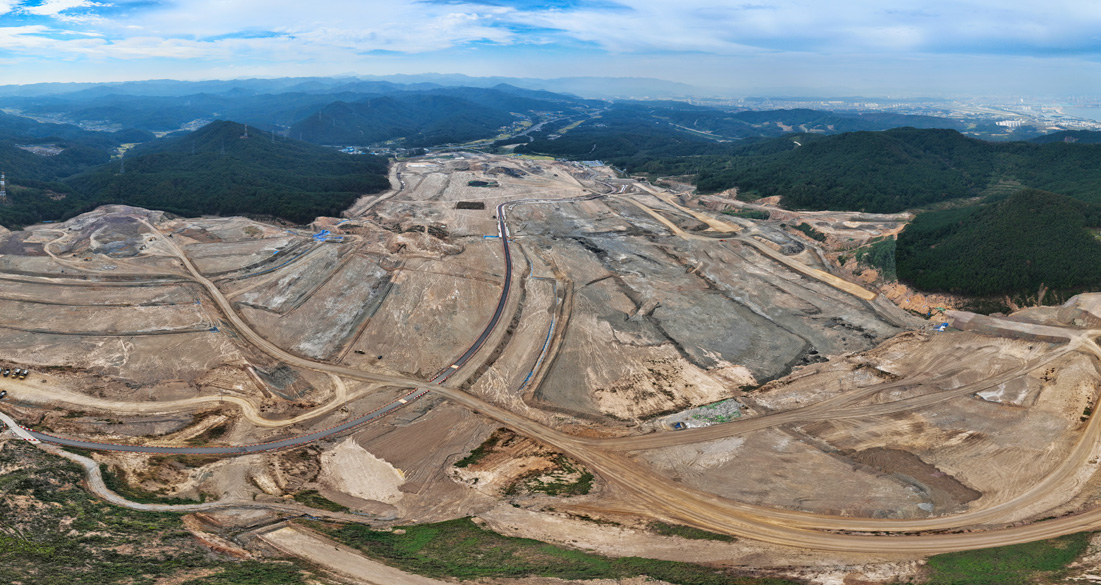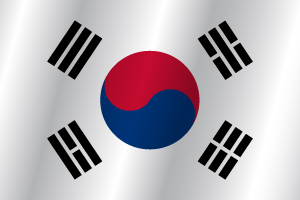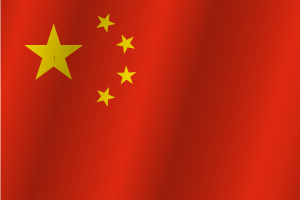- More opportunities,
better investment environment - You can count on Gyeongsangbuk-do
for your company’s successful investment in the region.
GIPO Investment Districts
More opportunities, a better investment environmentGIPO Information
More opportunities, a better investment environment- Staffs More opportunities, a better investment environment Detail View
- Investment Supports More opportunities, a better investment environment Detail View
- Overview More opportunities, a better investment environment Detail View
- Grievance Consulting More opportunities, a better investment environment Detail View
GIPO News
More opportunities, a better investment environment- 2024-02-16 Gyeongsangbuk-do Proactively Exploring Corporate Support to Boost Major Investment Inflows - uating the KRW 19.2 trillion investment milestone of the 8th National Assembly and ulating strategies to attract key sectors of the national high-tech strategic industries - - Discussions on enhancing investment attraction through regulatory res in collaboration with the National Assembly, the Prime Minister’s Secretariat, and central departments - The “2024 Gyeongsangbuk-do Investment Attraction Workshop” was held from February 15 to 16 (Thursday–Friday) at the National Forest Inventory Center in Cheongsong County, drawing the participation of aro 80 investment attraction officials from Gyeongsangbuk-do and its cities and counties. The workshop’s goal was to exceed the historical KRW 14.2 trillion investment record in 2023 by sharing insights on investment regulation re efforts made in partnership with the Prime Minister’s Secretariat and central departments, as spearheaded by Gyeongsangbuk-do. It also served as a plat to devise bespoke investment strategies for Gyeongsangbuk-do, leveraging the latest trends in corporate investment and the government’s pro-business policies. Activities included the sharing of key investment agendas and obstacles by municipalities, discussions on measures to enhance investment attraction, and a lecture by an expert aimed at crafting tailored investment strategies for the semiconductor and rechargeable battery sectors. Gyeongsangbuk-do highlighted successful examples of fostering investment from existing companies and significantly reducing time and costs through legislative measures and cooperation by municipalities, such as expanding the industry code for the Pohang Blue Valley National Industrial Complex, approvals for the Yeongdeok sea cable car, and the enactment of the Special Act on Promotion of Distributed Energy, erpinning the differential electricity pricing scheme. During the lecture, strategies for drawing investments were discussed by experts in rechargeable batteries and semiconductor materials, parts, and equipment, which are fields Gyeongsangbuk-do will lead in the future through its designation as a specialized complex for national high-tech strategic industries in 2023. Korea Trade-Investment Promotion Agency (KOTRA) Specialist Lee Sang-hoon and SK siltron Vice President Lim Nak-hoon highlighted the importance of leveraging the fast growth of future cars and artificial intelligence (AI) sectors to attract investment in the rapidly changing local and international industrial environments. They also noted that establishing robust ecosystems in the rechargeable battery, semiconductor, and defense sectors is key for Gyeongsangbuk-do to become the preferred choice for leading domestic and international enterprises. Ultimately, they called for adopting the business perspective and making concerted efforts to ease investment barriers through bold regulatory res. Gyeongsangbuk-do Province’s Head of Investment Attraction Office Hwang Jung-ha emphasized that “the collaborative efforts of Gyeongsangbuk-do and its municipalities are vital to secure investments in a highly competitive environment.” He erscored the importance of the provision of industry-specific complexes, such as the RE100 industrial complex, and expressed the need for attention toward developing high-quality rental housing projects to enhance the residential conditions of the local workforce. Notice
- 2024-02-08 Gyeongju Welcomes First Investment from Capital Region’s Automotive Electronic Parts Sector - KRW 45 billion investment by 2026 and 80 new job ings, supplying to global automotive manufacturers - - Developing Gyeongju as a hub for electric vehicle parts and mobility, securing future growth opportunities - Gyeongsangbuk-do and Gyeongju City have successfully partnered with a global supplier in the automotive electronic parts industry, reinforcing the automotive parts value chain in the southeastern region. This initiative marks a significant stride toward industry concentration, expanding Gyeongju’s role as a key cluster for electronic parts. Gyeongsangbuk-do Province and Gyeongju City alized the partnership with Duckil Industry on the 6th, signing an investment memorandum of erstanding (MOU) at Gyeongju City Hall to build a facility for automotive electronic parts. The ceremony was attended by Lee Dal-hee, Vice Governor for Economic Planning of Gyeongsangbuk-do, Mayor Joo Nak-young of Gyeongju, and You Ki-duk, CEO of Duckil Industry. er the agreement, Duckil Industry plans to invest KRW 45 billion by 2026 in a 20,000-m2 facility within the GeomdanIndustrial Complex in Gyeongju. The facility will manufacture electrical and electronic control parts for both internal combustion and electric vehicles (EVs), including power seat switches, and is expected to create approximately 80 new jobs. Established in 1993, Duckil Industry is a midsize company with 30 years of experience specializing in the manufacture of automotive electric and electronic parts. Its domestic portfolio boasts partnerships with Hyai Motor Group (HMG), DAS Corp., Lear Corp., Daechang Seat Co., Ltd., Hyai MSEAT, and Hyai TRANSYS, while its international clientele encompasses General Motors (GM), Toyota, Tesla, Stellantis, Tata Motors, and Rivian. The company operates its headquarters in Pyeongtaek, Gyeonggi-do, a research and development (R&D) center in Hwaseong, and a production factory in the Philippines. Duckil Industry commits over 10% of its annual revenue to R&D and has been actively advancing into the EV parts sector since 2020, securing contracts with key global automotive ps including Tesla, Rivian and Volkswagen, and producing over 2 million electric switches each month. Recognized for its contributions, Duckil Industry received the Gold Tower Order of Industrial Service Merit from the Ministry of Trade, Industry and Energy (MOTIE) last year. The investment aims to expand the automotive parts sector from Gyeongju’s Oedong to the Angang region in the north, broadening the industry’s cluster across the city and attracting technologically superior enterprises to elevate Gyeongju as a hub for advanced automotive parts. This has been welcomed with growing anticipation among the local populace. You Ki-duk, CEO of Duckil Industry, stated, “Our investment in the Gyeongju facility erscores our commitment to excellence, with stringent quality controls and state-of-the-art production and testing infrastructure. By reinvesting over of our annual revenue in R&D, our ambition is to spearhead the automotive parts industry as a globally recognized technology leader. We plan to prioritize the employment of Gyeongju residents at the new facility, fostering growth alongside the community.” Lee Dal-hee, Gyeongsangbuk-do’s Vice Governor for Economic Planning, said, “In an era of rapidly evolving industries, only the innovators that constantly challenge thrive. We are grateful to Duckil Industry for its forward-thinking investment despite the challenge and we extend our full support toward its journey to becoming the top global leader in automotive electronic parts.” Notice
- 2024-01-31 Gyeongsangbuk-do Province Expands Advanced Aluminum Industry Ecosystem in Gumi - HAIMK, A Joint Venture between Austrian Aluminum Company HAI and LS Materials - - Investment Plan of KRW 75 Billion by 2025, Creating Over 50 Jobs - - Gumi National Industrial Complex: A New Foation for Future Vehicle Material, Component, and Equipment Enterprises Following last year’s historic investment attraction of KRW 14.2395 trillion, Gyeongsangbuk-do, led by Governor Lee Cheol-woo, is taking bold steps to surpass its previous achievements. On January 30, Gyeongsangbuk-do and Gumi City held a signing ceremony for an investment memorandum of erstanding (MOU) with HAIMK Co., Ltd., attended by Gyeongsangbuk-do Vice Governor for Economic Planning Lee Dal-hee, Mayor Kim Jang-ho of Gumi, and HAIMK CEO Jo Jeong-woo, among others. The MOU outlines plans for the construction of a production plant specializing in aluminum materials used in electric vehicle (EV) parts. With a commitment to invest KRW 75 billion by 2025, HAIMK aims to establish a new facility in the 3rd Gumi National Industrial Complex, which will specialize in aluminum materials for EV parts, creating over 50 jobs. Foed in July 2023, HAIMK is a collaborative endeavor between LS Materials and Hammerer Aluminium Industries Gmbh (HAI), an Austrian aluminum extrusion company. This strategic partnership is geared toward meeting the surging demand for eco-friendly EVs, aligning with global trends toward sustainability. HAIMK primarily targets the Korean market with EV parts such as side sills, battery pack cases (BPCs), and profiles, which are crucial for safeguarding battery packs from external shocks. These products are expected to meet the requirements of Hyai Kia’s flagship EV models, indicating a promising future for growth. Investor HAI, established by the Hammerer family in Austria in 1939, has evolved into a major aluminum extrusion company, with sales reaching approximately KRW 872.2 billion in 2021 and KRW 1.3 trillion in 2022. Currently, aro 1,900 employees work across eight factories in four countries: Austria, Germany, Poland, and Romania. Vice Governor for Economic Planning Lee Dal-hee expressed deep gratitude for HAIMK’s first investment in Gumi, Gyeongsangbuk-do, anticipating its pivotal role in creating a foational aluminum industry ecosystem in the region. He pledged full support for HAIMK’s ambitious endeavors, promising assistance in establishing the company as a top-notch enterprise in the future EV aluminum sector. Furthermore, he affirmed Gyeongsangbuk-do’s commitment to transing into an optimal hub for cutting-edge material industries, ing on semiconductors and rechargeable batteries to address demographic challenges and lead the province into a new era of empowerment. Notice



























